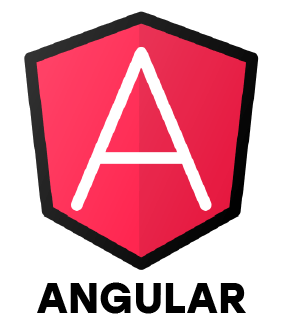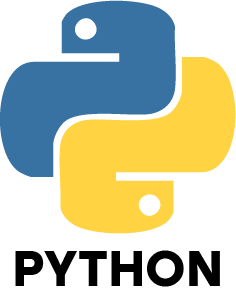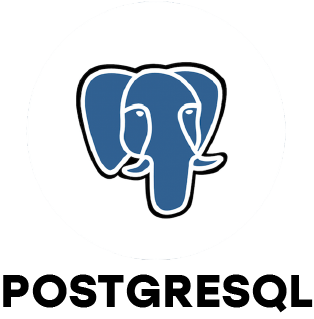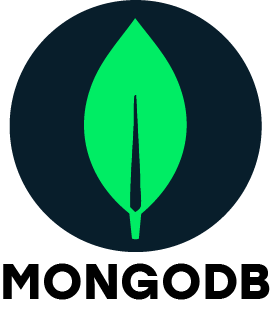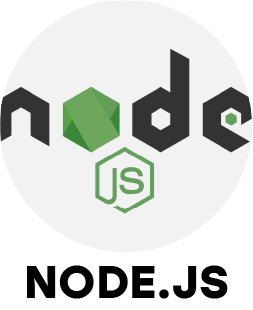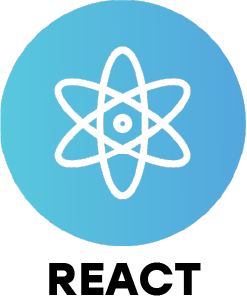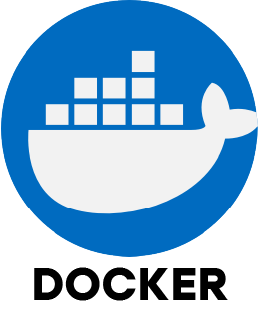Our ACTE Provides the Fresher Master Program course is an intensive two-week program designed to teach new graduates the skills needed to succeed in the professional world. From learning essential job search and interview skills to understanding the basics of accounting and finance, the course covers a wide range of topics to help students transition from college to the professional world. Through a combination of lectures, group activities, and hands-on projects, students will understand the workplace, the job search process, and the skills needed to succeed in their chosen field. The program also includes networking opportunities and mentorship from experienced professionals in the field, helping students to gain valuable connections and build a strong professional network. We Consider only the skill sets of the students and their dedication instead of Marks and Percentages. Enroll now to make your future brighter.
Additional Info
What are the Benefits of Taking the Freshers Master Program and Placement Trainings Online?
The most prominent benefits include the flexibility and convenience of learning at your own pace, the cost savings associated with taking courses online, the ability to access courses from anywhere, the convenience of studying from the comfort of your home, and the opportunity to gain valuable skills and knowledge from an experienced faculty. Flexibility and convenience are two of the main benefits of taking online courses.
By taking online courses, you can learn at a pace that fits your lifestyle, without having to worry about attending classes on a set schedule. This allows you to fit the courses into a busy lifestyle and is especially beneficial for those who need to balance their studies with family and work obligations. The cost savings associated with taking online courses are also significant.
Online courses are typically much more affordable than traditional courses and can be taken for much less money. Some schools even offer free online courses or have tuition discounts for students taking online courses. The ability to access courses from anywhere is another major benefit. You can take courses from any computer or device with an internet connection, allowing you to study from the comfort of your home or office. This is especially useful for those who travel frequently or have limited access to a classroom setting.
Taking courses online allows you to gain valuable skills and knowledge from experienced faculty. Many online courses are taught by experienced professionals who have been teaching for many years. This means you can learn from experts in the field who have a wealth of experience. This allows you to gain knowledge and skills that you can use in your future career. All in all, taking a fresher master's program and placement training online has many benefits. It provides flexibility, convenience, cost savings, and the opportunity to gain valuable skills and knowledge from experienced faculty.
Advantages of Fresher Master Program and Placement Training:
The Fresher Master Program and Placement Training is a great way for recent graduates or those who have just finished their schooling, to get a head start in their professional careers. It is an effective way to gain valuable skills and knowledge that will help them to make a successful transition into the workplace. This program offers a comprehensive training program that includes hands-on experience, industry-related theories, and practical applications. It also provides a platform for participants to network with top employers and gain an understanding of the job market and the type of opportunities available to them.
The program also provides a framework for employers to evaluate the potential of a job candidate and helps them make an informed decision when recruiting. The program offers various advantages to participants. It provides the opportunity to gain insight into the latest trends and advancements in the industry. This knowledge can be used to make more informed decisions when it comes to job hunting and career planning. Additionally, the program encourages the development of professional skills like communication, problem-solving, and leadership. The program provides a platform for employers to evaluate the potential of job candidates and make informed decisions when recruiting. The program also helps participants to develop their own career goals and create a roadmap to achieve them.
- Comprehensive Training: Fresher Master Program and Placement Training provide comprehensive training in core concepts of programming, web technologies, software engineering, and databases which are essential for job placements.
- Real-Time Projects: The program includes working on real-time projects to gain hands-on experience.
- Job-Ready Skills: The program provides job-ready skills which are important for getting a job in the IT industry.
- Industry Exposure: The program provides exposure to industry trends and technologies which helps freshers to stay up-to-date with the latest industry developments.
- Interview Preparation: The program also provides interview preparation which helps freshers to ace their job interviews.
- Professional Networking: During the program, freshers get a chance to network with industry professionals which can be beneficial for their careers.
Future Scope of Freshers Master Program & Placement Training:
The Freshers Master Program & Placement Training will continue to evolve and expand to better meet the needs of the next generation of job seekers. In the future, the program will aim to become even more comprehensive and include modules on job search and career development. The program will also seek to incorporate new technologies and resources, such as virtual career coaching and online job boards, to increase the likelihood of successful job placement. Additionally, the program will strive to incorporate new learning experiences, such as internships, mentorship programs, and apprenticeships, to give participants the skills necessary to succeed in the job market.
- Expansion of the program to include more advanced topics such as data science, machine learning, artificial intelligence, etc.
- Integration of virtual reality and augmented reality technologies to provide a more immersive learning experience.
- Provision of post-placement support such as career counseling and mentorship.
- Introduction of e-learning modules, online tutorials and webinars to facilitate better learning.
- Encouragement of alumni participation to create a community-driven platform for mutual benefit.
- Incorporation of industry-specific certifications and training to increase employability prospects.
- Use of psychometric and aptitude tests to assess the aptitude of participants.
- Promotion of job fairs and career events to bring together the industry and the trained freshers.
- Provision of information on job openings and networking opportunities.
- Creation of an online platform to facilitate better communication and collaboration between the freshers and the industry.
The program will provide students with more hands-on experiences to help them gain the skills and confidence needed for job interviews and other job-related tasks. Finally, the program will look to develop relationships with employers to increase the chances of successful placement for its graduates. By continuing to innovate and refine its offerings, the Freshers Master Program & Placement Training will ensure that its graduates are well-prepared to take on the ever-changing job market.
What are the Prerequisites for Freshers Master Program?
The Prerequisites for the Freshers Master Program are designed to ensure that all participants have the necessary skills and knowledge to succeed in their chosen field. Participants should have a strong academic background and be able to demonstrate competency in key areas such as communication, problem-solving, teamwork, critical thinking, and data analysis. Participants should possess basic computer skills including word processing, spreadsheet use, and general internet navigation. Applicants should already have a basic understanding of the industry or area they plan on entering through this program—this could include an introductory course or some professional experience related to their desired field.
- Bachelor’s Degree in any field of study from a recognized university.
- Good command of English, both written and spoken.
- Basic knowledge of computers and programming languages such as Java, C++, Freshers Master Program, etc.
Aptitude for problem-solving and analytical thinking skills to solve complex business problems quickly and efficiently.
- Ability to work independently as well as collaboratively with a team of professionals from diverse backgrounds across departments or organizations for successful project completion in time-sensitive environments.
- Strong communication skills to articulate business requirements clearly among stakeholders when developing software solutions or products based on their input/feedback or when presenting the solutions developed to them for approval/endorsement purposes during the lifecycle of the project development process involved in software engineering projects or products building initiatives undertaken by organizations they are employed in at present or may be employed by during their career growth journey ahead in life after completing the Freshers Master Program successfully with excellent academic performance results achieved marks wise while pursuing it currently!
What responsibilities does a new graduate of the Master's programme have?
Fresher Master Program is an entry-level program that provides a solid foundation in the core aspects of software engineering. As a Fresher Master, you will be responsible for developing, testing, and troubleshooting software applications while being guided by experienced members of the team. Your main job roles and responsibilities include:
- Designing, coding, and debugging applications according to project specifications.
- Understanding customer requirements and developing solutions accordingly.
- Writing unit tests to validate code functionality.
- Analyzing application performance issues and resolving them in collaboration with other team members.
- Participating in code reviews to ensure quality standards are met.
- Develop technical documentation for end users or other developers on the usage of applications developed by you or other teams within the organization.
As a Fresher Master, you may also be expected to assist senior engineers with complex tasks such as system design, architecture definition, etc., which will help provide valuable insights into various areas of software development life cycle such as database design & normalization techniques, etc., enabling efficient execution of projects from start till finish with minimal bugs/defects along the way!
Relevant Job Descriptions in the IT Sector:
- Assist in software development, maintenance, testing, and support of applications.
- Assist in the implementation and modification of existing systems as well as developing new systems from scratch.
- Work with the programming team to create user interfaces, code web pages, and troubleshoot technical issues related to software programs.
- Utilize various tools such as HTML/CSS, JavaScript, JQuery, and AJAX for web development purposes.
- Analyze user requirements to develop effective solutions that meet customer needs while meeting project goals/objectives within budget constraints or timelines set by management or clients.
- Provide technical assistance by responding to inquiries regarding errors or problems with software applications developed in-house or purchased from a 3rd party vendor.
- Develop reports using data stored in SQL Server databases using SQL queries.
- Monitor the performance of applications on an ongoing basis through testing procedures; analyze results & provide feedback for improvement.
- Maintain source code control repository & document all changes made within the codebase over time.
How Much Do You Earn After Completing Freshers Master Program?
The amount of money you can earn after completing a Freshers Master Program really depends on the track you choose and your individual performance. Generally speaking, graduates of this type of program have the potential to earn competitive salaries in the range of Rs 5,00,000 - Rs 8,00,000 per year depending on their experience level and area of expertise. Those with more specialized skills may be able to command much higher wages.
There is also room for growth in terms of salary as you gain experience and move up through different levels within your chosen field. Ultimately, with hard work and dedication any graduate from a Freshers Master's Program has the potential to enjoy a lucrative career path that matches their unique interests and passions.
Online Classes:
In ACTE, Online classes for freshers' master programs and placement training benefits have become increasingly popular in recent years. Online classes provide a convenient and flexible way to learn, allowing students to access lectures, tutorials, and other course materials at any time and from any location. They also allow for more self-directed learning as students can move through the material at their own pace. In addition, online classes often provide more individualized attention than traditional courses since instructors can quickly respond to student inquiries via email or discussion forums. Many online courses are tailored specifically towards helping students prepare for job interviews or receive certification in specific industries such as IT or marketing. Furthermore, because these programs are offered by professional universities they often come with a pre-set curriculum designed to meet specific employer standards which makes it easier for employers to assess potential employees’ qualifications when considering them for a position or promotion. Placement training is another significant benefit of taking an online class as it provides valuable tips on how best to present one’s skillset during an interview process while also giving insight into how the hiring process works in general which can help increase one’s chances of getting hired or promoted within their current organization.







